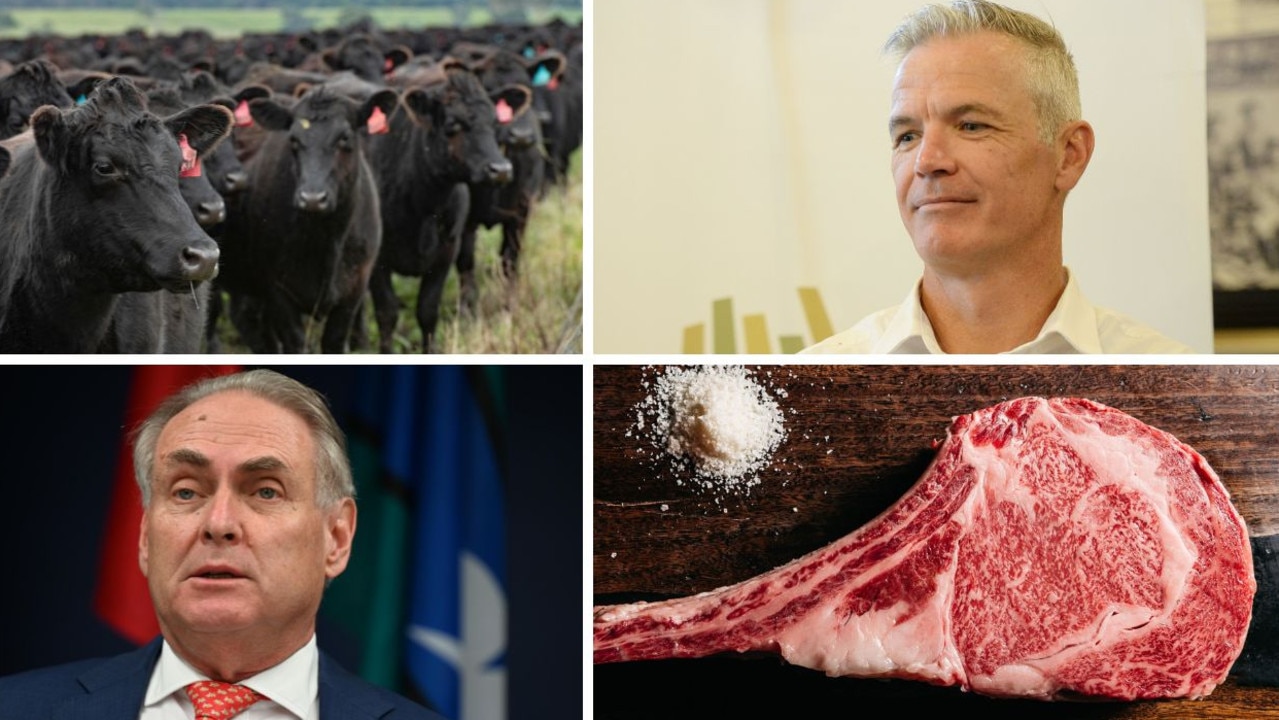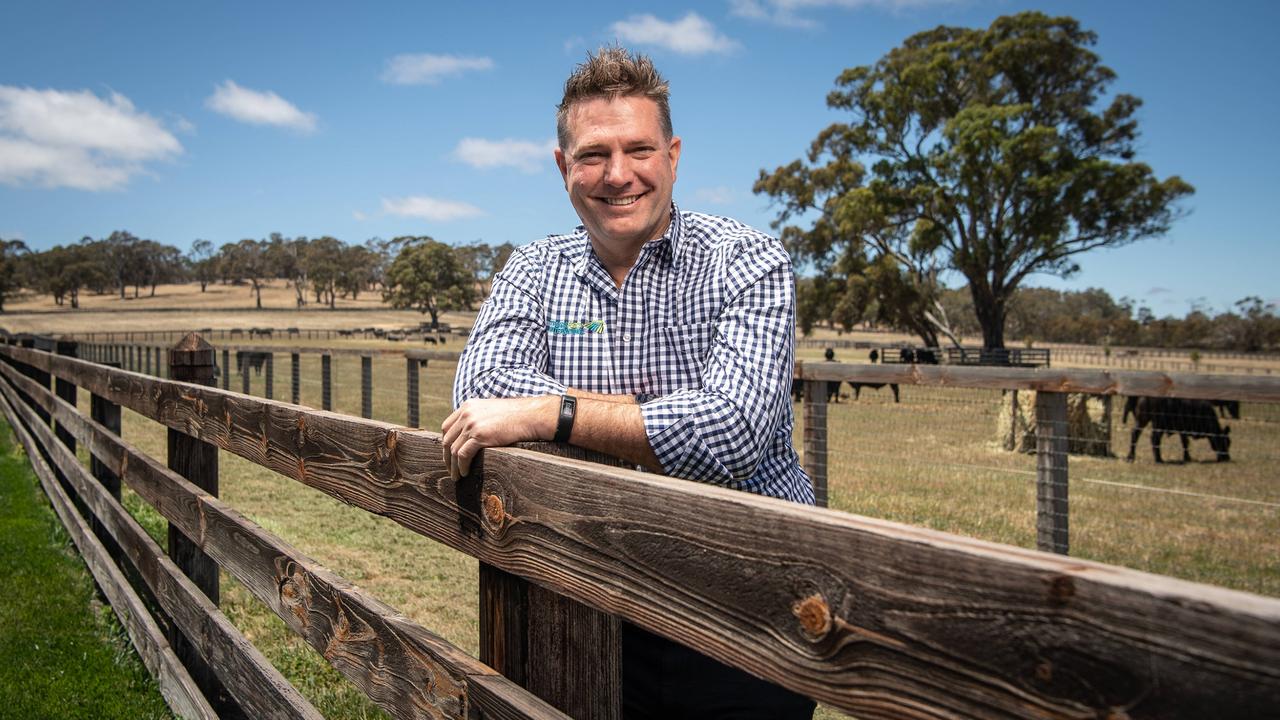How the Raffa family from Tooradin run a profitable asparagus farm
The Raffa family has been growing asparagus in the rich soil of Tooradin, in Victoria’s southeast, since the 1950s. See why their business is profitable.
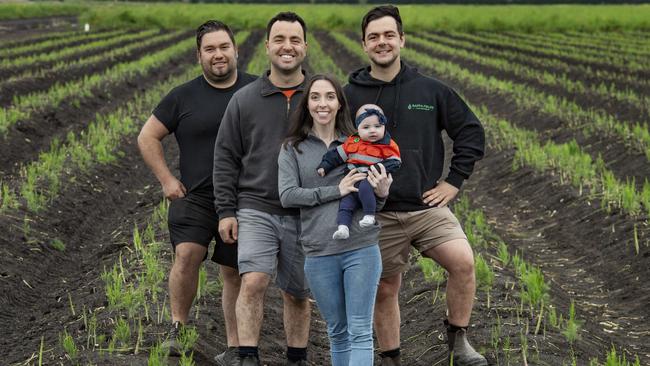
Agribusiness
Don't miss out on the headlines from Agribusiness. Followed categories will be added to My News.
It started with one man, and just 16ha of land.
The Raffa family has been growing asparagus in the rich soil of Tooradin, in Victoria’s southeast, since Luigi Raffa first emigrated to Australia from Italy in the 1950s.
Now, the family’s enterprise — Raffa Fields –— spans a total of 263 growing hectares, with farms in Victoria and a new site in South Australia’s Riverland.
For this multi-generational family of farmers, producing on a large scale the same quality crop as their grandfather would have grown, is at the core of everything they do.
Luigi had two sons, Con and Lou, who between them have three sons who are all involved in the farm: Vince, Christian, and Adrian.
When The Weekly Times visited last month, Luigi’s great-granddaughters Adele and Valentina were also present.
It’s this same sense of responsibility and love for the farm that unites the Raffa family.
“I loved it when I was a kid,” Vince said.
“I always wanted to go with Dad to the farm. And the little ones seem like they’re the same.”
The business now operates across three growing sites, which gives the Raffa family the opportunity to access the market for a longer period, a move that Christian’s wife Rosalee said was driven by consumer demand.
“The feedback from Coles (the Raffa’s main market) was that demand is strong at the tail end of the season for Australian asparagus,” Rosalee said.
And increasing the footprint of the enterprise to include South Australia is a part of this.
Adrian said by sowing a crop in South Australia, the family could access the market for longer, with harvest expected to start about four weeks earlier than Victoria.
“We should be able to kick off in late July, all the way through to April, (across all growing sites) instead of mid-September,” Adrian said.
In an average year, between 1800 and 2000 tonnes of raw product is produced across the Raffa Fields enterprise.
“Probably for that yield, we have some of the smallest acreage. We do well and are highly productive,” Adrian said. “We try not to take on more than we can chew.
“My Dad and my uncle do everything that they can, but they are not the type to take a shortcut.
“Our grandfather always said if you’ve grown 20 acres (8ha) and want to expand, you have to grow the same on 100 acres (40ha).
“You don’t want to expand to 100 acres (40ha) and do half the job.
“So we do things the same as if we were growing 10 acres (4ha).”
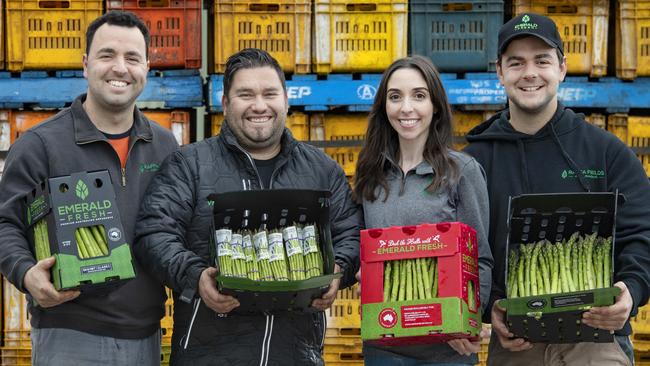
Part of the family’s plans for expansion include a $250,000 grant from Coles’s Nurture Fund, which supports innovative projects in horticulture.
The funds will be used to construct climate-controlled polytunnels: large growing structures which will maintain a particular climate and stabilise growing.
“It’s always something we’ve wanted to do, but it’s a huge investment,” Adrian said. Construction of the tunnels has been held up due to ongoing Covid-19 shipping delays.
“Nonetheless, it’s still scheduled to kick off construction around April.”
Adrian said harvest was well underway at Tooradin, after the crop matured earlier than anticipated after a warm winter.
Asparagus is grown over two crop seasons: a spring crop which runs from September through to mid-December, then a summer crop from mid-December to April.
“It’s the same plant, but in the summer we manipulate the plant to shoot out of season,” Adrian said.
“We plant a seed in the nursery, and from that we get a crown structure, then we replant in the field.”
About 10,000 crowns are planted an acre or 0.4ha, with about 20ha planted at a time, depending on production forecasts for the year.
“We’re in serious growing mode at the moment,” Rosalee said, with a focus on expanding the enterprise of the farm.
“We’re trying to get Australian asparagus longer in the year. In recent years, there’s really been demand for that summer crop.”
The peat-clay soils of Tooradin and Koo Wee Rup has made the region renowned for being ideal asparagus-growing country in Victoria.
But climate plays a role too in the success of a crop.
This season, the winter was so unseasonably warm, the crop matured early.
“We were up and going in the middle of August, which gave us a month-and-a-half advantage,” Adrian said.
“We were lucky this year the weather came to us. It was too good to be true.”
The microclimate of the Tooradin region, according to Adrian, is “pretty unique”, and perfect for asparagus.
“We’re not too hot, and not too cold. But most important is the soil,” Adrian said.
“It’s a heavy peat clay soil. It’s black, and the slightest bit of sunshine it soaks it up, and warms up. If you were to grow the same product in different soil, it would be so different.”
Average rainfall is between 900 to 1000mm for a year.
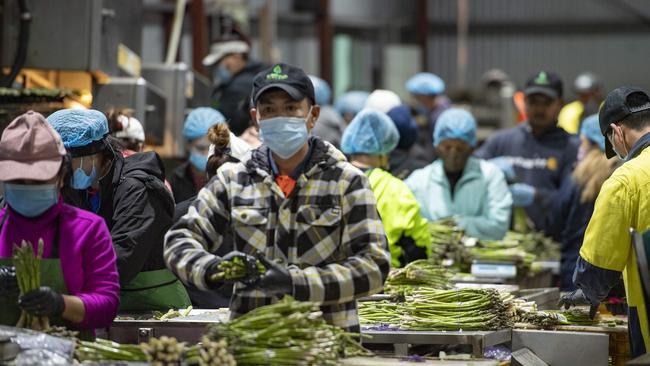
This year the farm at Toorardin has recorded more than 900mm by November.
Although sometimes too much rain can be a bad thing.
“If you get rain, you’ll flood the ground. And you can irrigate, but it’s hard during the season,” Vincent said.
“About seven years ago we lost about 70 per cent of our plants due to being waterlogged.”
Adrian said the spring crop is entirely irrigated by natural rainfall.
“We have a nice high water table, and once the plants are mature they can tap into that. But when it floods, you have that high water table, and it can be pretty rough.”
Family remains at the centre of the Raffa Fields business.
While there enterprise has a strong labour force – which was affected by Covid-19 cases and lockdowns – you’d be hard pressed to find a day of the week where a member of the Raffa family wasn’t on site.
“This year we’ve got full staffing in the field. Unfortunately the Covid-19 cases has affected our packing house community, with people being in isolation and close contacts, so we’re not able to scale up to full production,” Adrian said.
But regardless of what challenges are thrown their way, whether it be weather, natural disaster, or a pandemic, one thing will never change.
“Our Dads will never leave,” Adrian said.
“It is a passion. You work seven days a week, and there’s always something different to do,” Vincent said.
“We’re all trying to innovate, and to come up with new ideas. It’s really a passion, you can’t call it a job.”
As Rosalee said, “it’s a legacy”.
Originally published as How the Raffa family from Tooradin run a profitable asparagus farm




